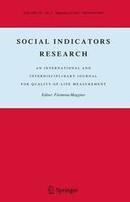Married individuals are healthier and live longer than those who are never married, divorced, or widowed. But not all marriages are equal: unhappy marriages provide fewer benefits than happy ones. This study examined health and longevity across a nationally representative sample of U.S. adults, combining measures of marital status and marital happiness to compare those who were “very happy” in marriage to those who were “pretty happy” in marriage, “not too happy” in marriage, never married, divorced or separated, or widowed. We employed the General Social Survey–National Death Index to illuminate the associations among marital status, marital happiness, general happiness, and self-rated health and mortality risk. Compared to individuals who were “very happily” married, those who were “not too happy” in marriage were over twice as likely to report worse health and almost 40% more likely to die over the follow-up period, net of socioeconomic, geographic, and religiosity factors. Those not too happy in marriage also had equal or worse health and mortality risk compared to those who were never married, divorced or separated, or widowed. Results further indicate that general happiness underlies much of the relationship between marital happiness and better health and longevity. The literature on the health and longevity benefits of marriage is well established, but our results suggest that individuals in unhappy marriages may be a vulnerable population. We conclude that subjective well-being and relationship quality contribute to the health benefits of marriage.
Via Dr James Hawkins



 Your new post is loading...
Your new post is loading...











En general, las personas casadas viven más que las solteras, divorciadas y viudas, pero la calidad de las relaciones influye: los matrimonios infelices ofrecen menos beneficios de salud que los felices.